Community Director Simeon Oriko led the event, which included demos, updates on workstreams, an overview of the product roadmap, and introductions to new members and staff. The meeting also featured strategic planning for the next three-month program increment (PI).
During the opening remarks, Mojaloop Foundation Executive Director Paula Hunter noted that “Annual mid-year sessions like this one are really important check-ins in which we talk about how we’re progressing on our workstreams and customer requirements.”
All sessions are available to watch on our YouTube playlist, with a few of the key presentations highlighted below.
Workstream Dashboard and the Mojaloop Roadmap
This is the session to watch to get an overview of how all the Mojaloop workstreams are doing and what upcoming releases have in store.
In this session, Paul Makin, product manager at Mojaloop Foundation, summarized the status of all the workstreams and their next steps and reviewed the new roadmap for the work to come in the next few months. He then discussed planned additions that are being requested by adopters, the go-to-market team, and developers and integrators.
Featuring lively discussions with Community members, the session does a great job of showing how active and collaborative the Mojaloop Community is.
Watch the Session on YouTube >
Native ISO 20022
This session, presented by Julie Guetta, recapped the ISO 20022 workstream’s goals: identifying the ISO 20022 equivalents for Mojaloop APIs, defining a new message for the transaction agreement phase, and collaborating with the financial industry on ISO 20022 standards.
During this PI, the workstream released V1 of the mapping catalog and a new message standard, engaged with SWIFT on their new address discovery standard, and consulted with the Bank of International Settlements on their cryptographic lock field.
Julie demonstrated the mapping catalog, which is accessible on GitHub or via the Mojaloop technical Slack channel. Michael Richards, our new principal architect, showcased the new message standard tooling, which integrates the ISO standards API with Mojaloop. He also demonstrated the SWIFT modeling tool, which allows developers to explore, modify, and add to the data dictionary, applying these changes to a Mojaloop scheme.
Watch the Session on YouTube >
Mojaloop TigerBeetle Integration
In this session, Pedro Barreto of Cyberbones Digital Solutions and Jason Bruwer of Interledger Foundation discussed the architecture and liquidity check for the integration of TigerBeetle with Mojaloop. TigerBeetle is a next-generation open source financial transactions database that prioritizes speed, safety against local storage faults, and high availability.
Pedro provided a primer on Mojaloop’s accounts and balances system, highlighting the advantages of shifting from the old approach to one that leverages TigerBeetle’s superior performance.
Jason then explained the liquidity check process, detailing the current flow and the upcoming changes with the TigerBeetle integration. After collaborating with the TigerBeetle team, Pedro and Jason concluded that streamlining the workflow to require just one call within TigerBeetle would be faster and safer. This update eliminates the need for account lookups and removes the necessity to pull balances into Mojaloop’s accounts and balances system.
Watch the Session on YouTube >
Localization Workstream Update
The goal of this workstream is to make Mojaloop more accessible to countries that use different time zones, currencies, and languages. Co-leads Ei Ngon Phoo of ThitsaWorks and Luis Roy Zulu of Probase Group shared recent updates.
Ei detailed Mojaloop’s localization efforts, explaining each feature’s purpose, solutions, advantages, and progress. Time zone localization is set to default to UTC, with phase 2 allowing local time options. Currency configuration is complete, enabling hub operators to select from various currencies.
Luis outlined upcoming language localization efforts, emphasizing improved user experience and national sovereignty. After evaluating libraries, the team recommends i18next for its robustness. Luis demonstrated how operators can easily offer multiple languages, allowing users to switch between them.
Watch the Session on YouTube >
Join Us for Our Next In-Person Convening
Our next event is coming up November 12-15 in Kigali, Rwanda at the Kigali Convention Center and Radisson Blu Hotel. Registration will open soon — be sure to take advantage of the early bird rates for hotel rooms.

